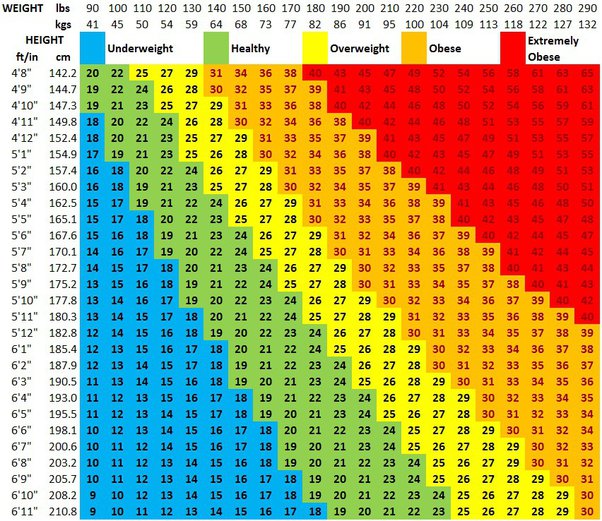Are you wondering, “Am I overweight for my age?” This is an important question that many of us ask, whether for health reasons or to feel our best. It’s not uncommon to wonder how weight is connected to age, but understanding this relationship requires more than guesswork.
This article will explore what it means to be overweight for your age, how it’s measured, and the tools you can use to better understand your own body and health.
What Does ‘Overweight for My Age’ Mean?
Being overweight is often assessed based on factors such as Body Mass Index (BMI) and waist-to-height ratio, but age itself isn’t always a direct determinant. Instead of focusing solely on age, health professionals look at height, weight, body composition, and lifestyle norms when evaluating whether someone is at a healthy weight.
However, as you age, your body undergoes changes such as shifts in metabolism, hormone levels, and muscle mass, which may influence your weight. Finding your ideal weight is less about comparing yourself to others in your age group and more about understanding your unique body and health goals.
Tools to Help You Understand Your Weight
1. Body Mass Index (BMI)
BMI is one of the most commonly used tools to assess weight in relation to height. It provides a general idea of whether your weight is in a healthy range.
To calculate your BMI, divide your weight (in kilograms) by your height (in meters) squared. For example, if you weigh 70kg and are 1.75m tall, your BMI is calculated as:
“`
BMI = 70 ÷ (1.75 × 1.75) = 22.9
“`
Here’s how BMI ranges are classified:
- Underweight: Less than 18.5
- Healthy Range: Between 18.5 and 24.9
- Overweight: Between 25 and 29.9
- Obese: 30 or greater
Remember, BMI isn’t perfect. It doesn’t account for differences in muscle mass, bone density, or fat distribution.
2. Waist-to-Height Ratio
Waist-to-height ratio is another useful metric. It’s calculated by dividing the circumference of your waist by your height. Research suggests that a healthy waist-to-height ratio is less than 0.5 for both men and women. This metric can be a better indicator of fat distribution and health risk compared to BMI alone.
Use a simple tape measure to check your waist and keep it below half your height.
Factors That Influence Weight with Age
Metabolism Changes
Metabolism typically slows down as you age, making it easier to gain weight even if your diet and activity levels remain the same.
Muscle Mass Decline
Muscle naturally declines with age, meaning fewer calories are burned at rest. Strength training and a protein-rich diet can help combat this.
Hormonal Shifts
Both men and women experience hormone changes that can affect weight. For example, women going through menopause often face weight gain due to reduced estrogen levels.
Lifestyle Choices
Your activity level, sleep quality, and food choices play a much larger role in your weight than age alone. Maintaining a balanced and active lifestyle can make a huge difference.
How Do I Know if My Weight is a Problem?
The best way to determine whether your weight is affecting your health is to look at more than just the numbers on a scale. Speak to a healthcare provider to discuss:
- Family history of conditions such as heart disease or diabetes
- Any existing medical conditions related to weight
- Lifestyle factors, like diet and physical activity habits
The Benefits of Maintaining a Healthy Weight
Maintaining a healthy weight has far-reaching benefits beyond appearance. It can help you:
- Improve Cardiovascular Health
Lowering excess weight reduces strain on your heart and can lower your risk of conditions such as high blood pressure and heart disease.
- Enhance Mobility and Energy Levels
Carrying extra weight can lead to joint pain and fatigue, while shedding it can improve your stamina and movement.
- Boost Mental Health
Achieving a healthier weight can improve self-esteem, reduce anxiety, and contribute to overall happiness.
5 Steps to a Healthier You
If you’re worried about whether you are at a healthy weight, here’s where to start:
- Calculate Your BMI or Waist-to-Height Ratio: Use online calculators like the Slimming World BMI calculator for quick and easy results.
- Set a Realistic Goal: Remember, even small changes in weight can make a big difference to your health.
- Adopt a Balanced Diet: Focus on nutrient-dense foods, including fruits, vegetables, lean protein, and whole grains.
- Stay Active: Aim for at least 150 minutes of moderate exercise per week, incorporating strength training to preserve muscle mass.
- Monitor Your Progress: Track your weight, eating habits, and activity levels to stay motivated and make adjustments as needed.
Final Thoughts
When it comes to weight and health, knowledge is power. Instead of comparing yourself to others your age, focus on understanding your unique body and making small, sustainable lifestyle changes. Using tools like BMI and waist-to-height ratio can give you a starting point, but always consult a healthcare professional for more personalized advice.
By taking steps toward a healthier lifestyle now, you can enjoy long-term benefits for both your body and mind.
Wondering “Am I overweight for my age?” Take the first step today by checking your BMI or consulting with a healthcare professional. Start your health journey now!








